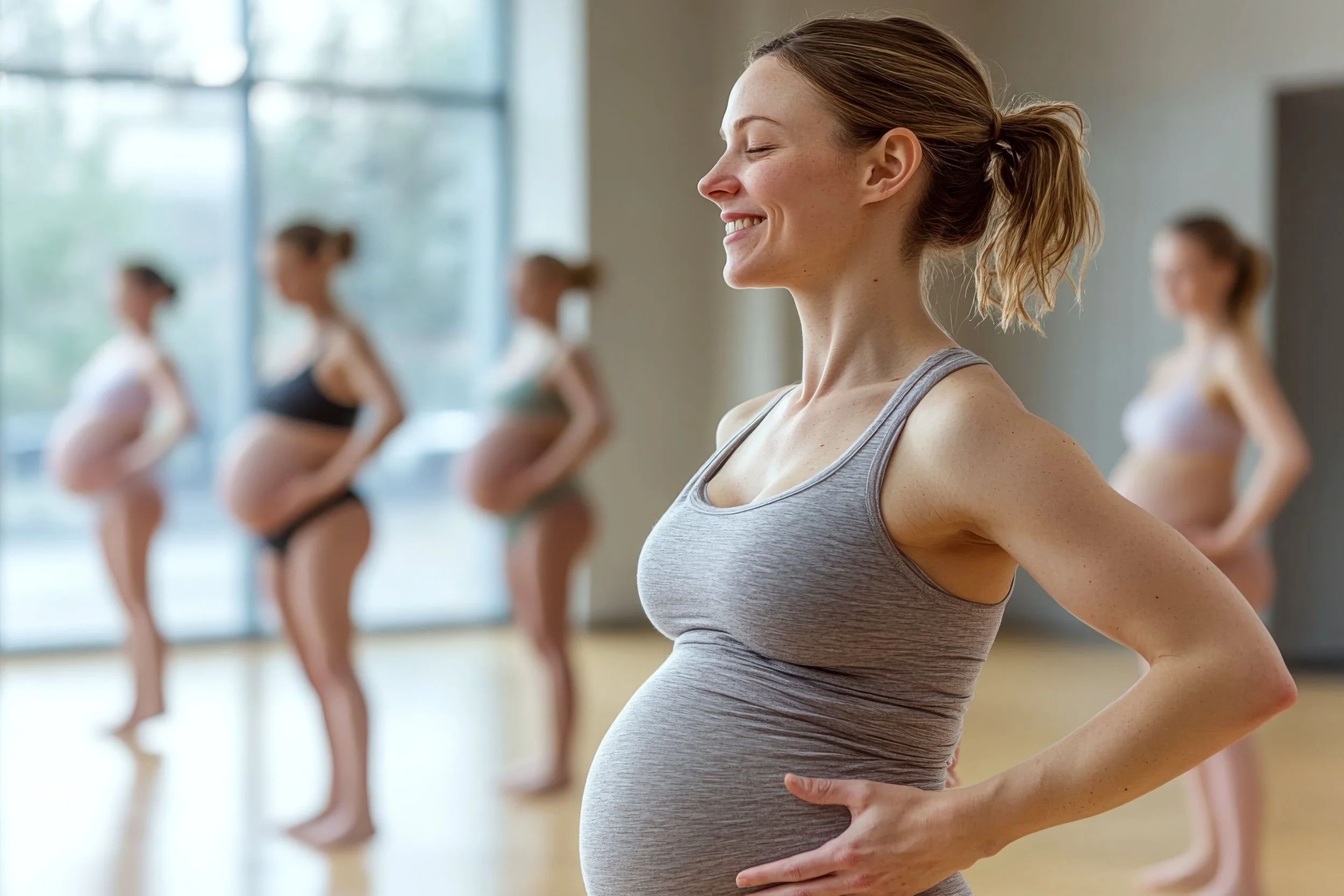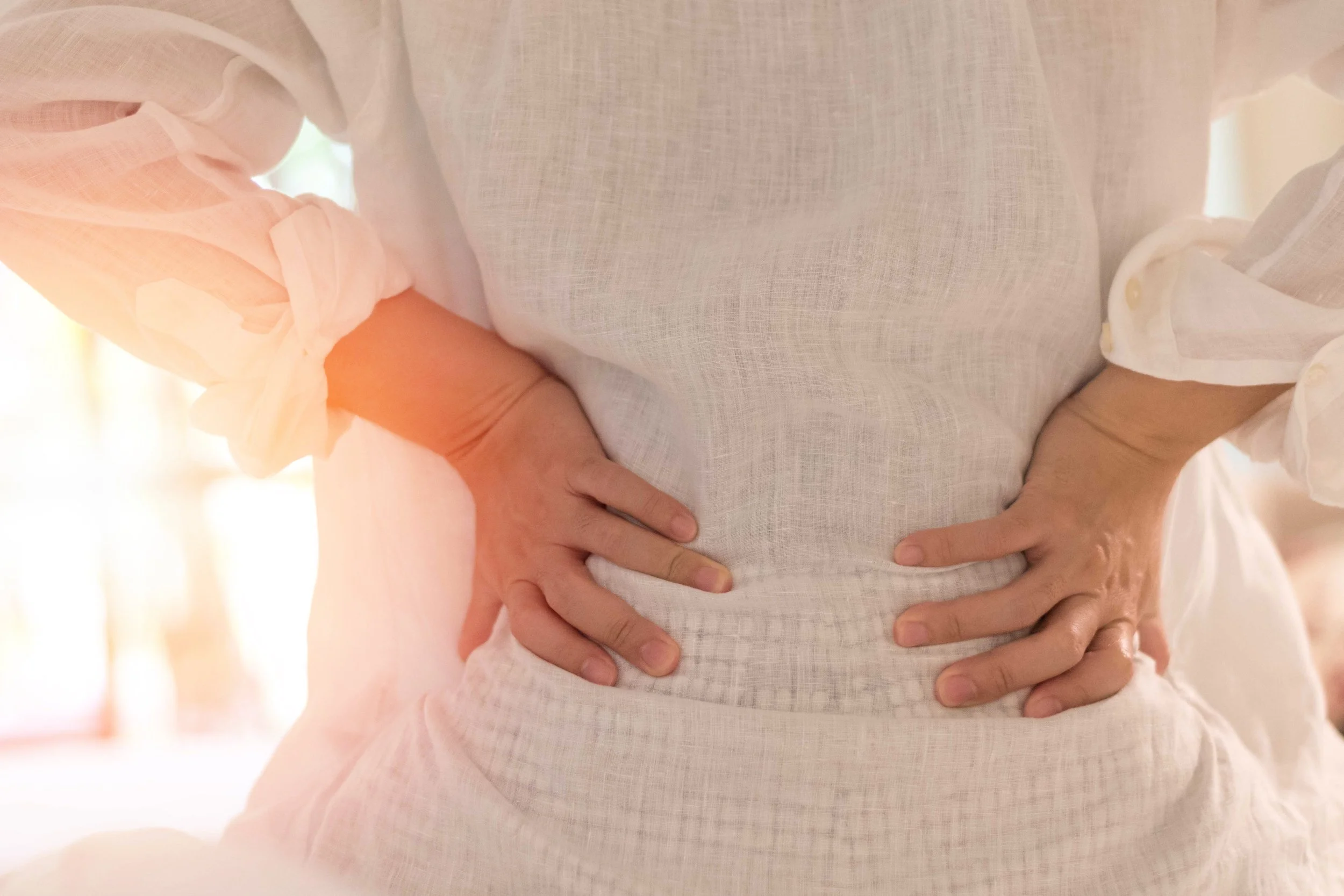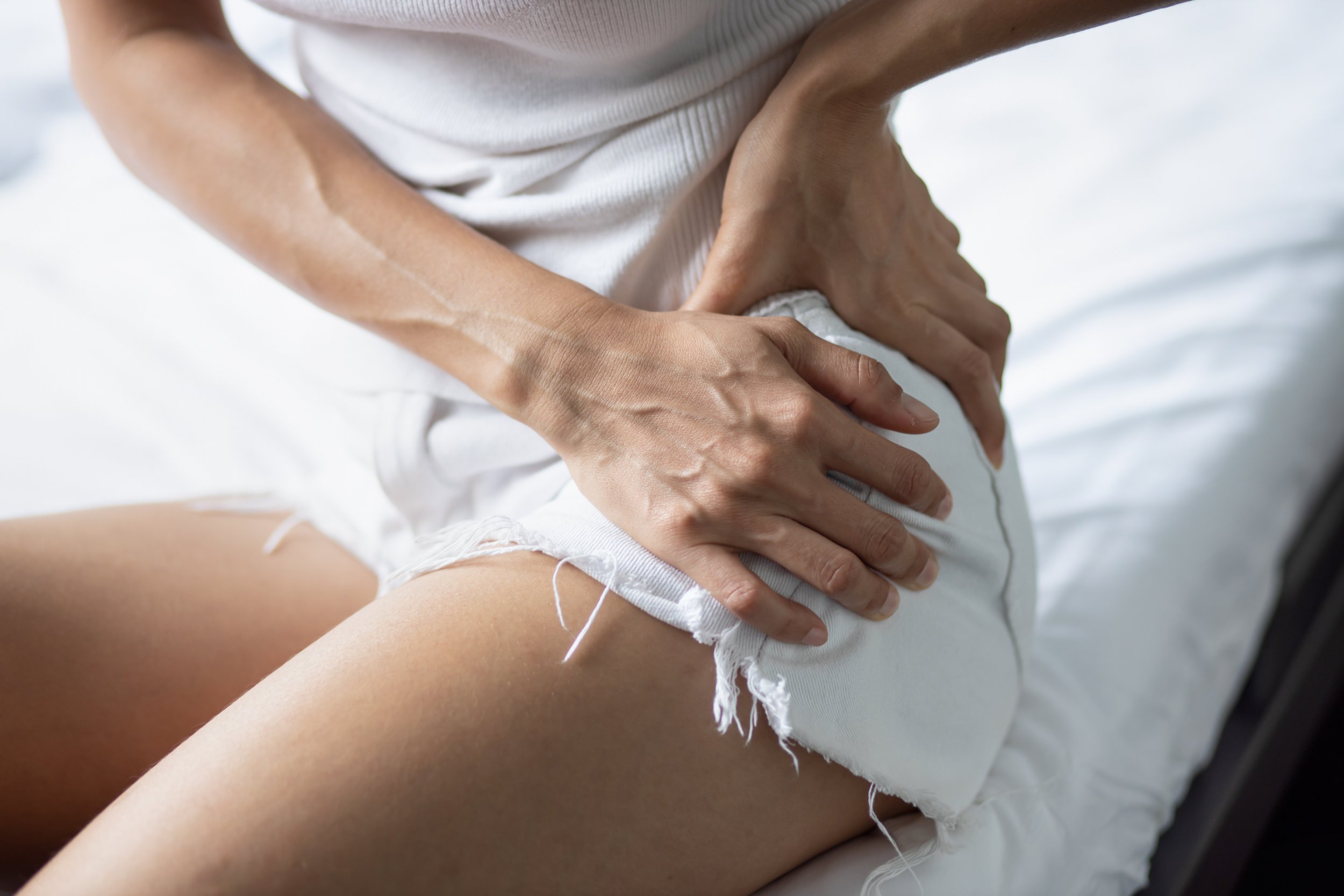Pelvic Girdle Pain Treatment (PGP) at Vitalis Physio
Gentle, Effective Support for Pelvic Girdle Pain During and After Pregnancy
Pelvic Girdle Pain (PGP) affects 20-50% of pregnant women. It can be very painful and debilitating, and get in the way of simple movements that we usually take for granted, such as walking, getting in and out of a car, and rolling over in bed. At Vitalis Physio, we offer expert, individualised care to help manage symptoms, optimise strength, and ease pain through pregnancy. We can also help after pregnancy if you have suffered from PGP while pregnant and would like help with a structured return to sport or running.
Whether you are pregnant or post-partum, tailored pelvic girdle pain treatments can help you regain comfort and ease of movement.
What is Pelvic Girdle Pain?
Pelvic Girdle Pain refers to discomfort in the joints and ligaments of the pelvis, including the sacroiliac joints and the pubic symphysis at the front of the pelvis. Most frequently, it arises in the second or third trimester of pregnancy, but can occur in the first trimester, especially if you have suffered from it in previous pregnancies. While it is often associated with pregnancy, it can occur postpartum or due to other biomechanical factors.
Symptoms may include:
Pain in the hips, lower back, buttocks, or groin
Pain when walking, climbing stairs pain that worsens throughout the day, pain when rolling over in bed
Specialist Treatment
for PGP
Pregnancy brings incredible changes to the body, but it can leave you vulnerable to discomfort.. If you're seeking treatment for PGP, our approach combines gentle hands-on therapy with gentle yet targeted strengthening exercises to support your body safely throughout pregnancy.
We use:
Soft tissue release to reduce pain
Gentle joint mobilisations to improve movement if required
Pelvic, hip, and core stability exercises
Advice on posture, movement, and activity modification
Our goal is to keep you active, minimise discomfort, and enable you to enjoy your pregnancy with confidence.
Treatment for PGP after birth
If you have had your baby and are still struggling with PGP, know that you're not alone. At Vitalis, we can help. Our treatment focuses on gently restoring normal pelvic and hip mechanics with hands-on techniques, restoring strength with gentle exercises, and correcting any imbalances. This will allow you to enjoy your little one with confidence in your own body. We can also support you and help optimise your fitness, enabling you to return to running or sport. We offer:
Soft tissue release to reduce pain
Gentle joint mobilisations to improve movement if required
Pelvic, hip, and core stability exercises
Progressive strength and conditioning exercises
Advice on return to running and sport
Why Choose Vitalis Physio for
Pelvic Girdle Pain?

Feel stronger and take control
Ready to Feel Strong, Supported, and Pain-Free?
If you're experiencing pelvic pain during or after pregnancy, don't wait to seek help. Our expert physiotherapy at Vitalis Physio can guide you toward lasting relief with care that’s tailored to your body and lifestyle.
Vitalis Physio
Watlington Wellness Centre
1 Cuxham Road, Watlington OX49 5JW
info@vitalisphysio.com
07432 690233
FAQs About Pelvic Girdle Pain Treatment
-
PGP in pregnancy is typically caused by hormonal changes that soften the ligaments, combined with physical changes in posture and a less advantageous weight-to-muscle ratio. As your pelvic bones and joints become more mobile, pain, especially in the front of your pelvis, can occur.
-
Yes, pregnant women frequently experience pelvic pain in the second and third trimesters. It can vary in severity, but with the right care, symptoms can be managed.
-
In some cases, a pelvic support belt or taping may be helpful to provide external stability to the pelvis and ease discomfort.. We can assess whether this would benefit you.
-
Women with PGP often report difficulty walking, sleeping, or performing daily tasks, taking some of the joy out of their pregnancy experience. Early treatment can help relieve symptoms and improve your comfort and function.
-
Your pelvic floor muscles play a vital role in stabilising the pelvis and supporting your spine. Strengthening them is often a key part of our treatment plan to improve stability and reduce pain.
-
Most PGP symptoms resolve within days of giving birth, but some women continue to experience symptoms. Our pelvic girdle pain treatments are designed to help you recover fully and return to your normal activity levels safely.
-
Yes - with guidance. Physical activity is important, but it must be adapted to your condition. We provide modified exercises and movements that keep you active without aggravating pain.
-
Unfortunately, PGP can recur in subsequent pregnancies, often presenting earlier in each subsequent pregnancy. However, if you prepare for pregnancy and are strong in your hip, pelvis, and abdominal muscles, there is a good chance you can stave off symptoms for longer. Come and see us for early intervention.









